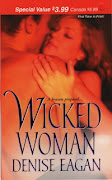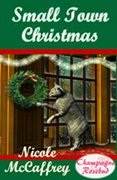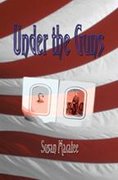For me, a story is not escapism - it’s not even romance – unless it’s historical!
Why not escape high gas prices, faltering economy, war, and political races by entering a beautiful period in our past. Give me long skirts, fine manners, and the clip-clop of carriage horses on cobblestone streets.
Actually, I’ve always loved any period of history. I’ve even played around with stories set in the age of stone circles and dolmens. (Yes, there are dolmens in New England.)
What part of the Victorian era/setting do you write in?
My favorite era in history is the thirty-five year period between the end of the American Civil War and 1900. It’s often called the Gilded Age, and what sounds more romantic than that?
The Americas are my setting. There are thousands of untold events in American history which make wonderful settings for romances. I don’t understand why writers in this country look so often to Europe.
What is it about the era that most intrigues you?
After the Civil War, Americans changed the world forever by believing in the legend of the self-made man. Young entrepreneurs like Astor, Vanderbilt, Jay Gould, Andrew Carnegie, J. P. Morgan, and John D. Rockefeller saw no boundaries. While they became the first millionaires, and eventually billionaires, they carried the American people along on a great adventure. They “Won the West” from their New York offices and made the United States a world powerhouse. What they started lasted throughout the twentieth century.
Where do you get your information?
Books about history are my greatest source. I have a collection of non-fiction books that zero in on specific events, people and groups. I use the internet to browse by topics – and find a lot of good information – but I usually end up ordering these reference books online – used, if possible.
What are you working on now?
I’m working on a science fiction romance set in Texas in 1897. There are no cowboys in it. It concerns townspeople in a small community north of Fort Worth who try to cope with extraordinary events. The heroine is a school teacher who struggles to deny her love for the handsome son of the town’s banking family.
How many books have you written?
I’ve written two books. The first was a paranormal historical, A SPANIARD DEPARTS. Set in 1542, it follows the afterlife of Captain Rodrigo Romo, one of explorer Hernando De Soto’s minor officers. The book rambles all over the place and was well over 100,000 words in length when I stopped working on it. (I can’t truthfully call it finished.) I loved writing it - but I don’t see it ever being published. Actually, it would make a great video game!
My second book, A MAN AT THE DOOR, is a Victorian romance set in the mid 1880’s. The hero is a Manhattan stoneworker of Irish descent who improbably falls in love with a wealthy, shy spinster. This also grew into a whopping tome of over 100,000 words. I’m presently working to trim the fat and a few characters, and make it publishable. There’s enough left over for at least one sequel.
Do you write outside of the Victorian era, genre?
Yes. I hope to write a romance set in Jamestown in the 1680’s, and my short stories are, oddly enough, mostly contemporary.
What challenges have you faced in your career?
Like all writers, life itself is my biggest challenge. I wanted to have it all – home, children, grandchildren, teaching career – and this left little time for writing before I retired. I’m a late starter – but I’ve amassed many life experiences which, I hope, give depth to my characters.
What is your writing schedule like?
Hmmm. Hap-hazard is the word that comes to mind. My ideal schedule would be to write all night and sleep all day. Of course that doesn’t work in the real world.
Every now and then I make a reasonable and ambitious writing schedule. I work hard to follow it. Then I’m bumped out of bed by my undisciplined muse who whispers in my ear, “You won’t remember this great idea in the morning. Get up right now and write!”
The next thing I know, the morning paper is being tossed against my front door – and I’m needing sleep. How can I get a better muse?
I’ve enjoyed answering your questions. They’ve been thought-provoking and have made me reassess my work. Thank you.









7 comments:
Great interview Mary Ann! Love your paranormal idea. Sounds like fun - both to write and to read
I had no idea you are a retired teacher, Mary Ann. Now I know how you manage us so well. It was great to get to know you better through this interview.
There was a lot of stuff in there that I didn't know. Like a first book I'd never heard of, short stories, and that your muse wakes you up in the middle of the night. I wonder if she is friends with my muse--who does the same thing?
Loved the interview, Mary Ann!
You did a great job. And I'm still waiting to read more about Hugh Hennigan. Haven't gotten enough of him yet.
I enjoyed learning more about you!
Great interview, Mary Ann!
Mary Ann, you have a muse like mine. But with allergy season kicking my butt, it's harder and harder to wake up in the middle of the might to write. Plus that pesky day job which requires me to be awake.
I can't wait to read that Jamestown story, it's always intrigued me.
Post a Comment